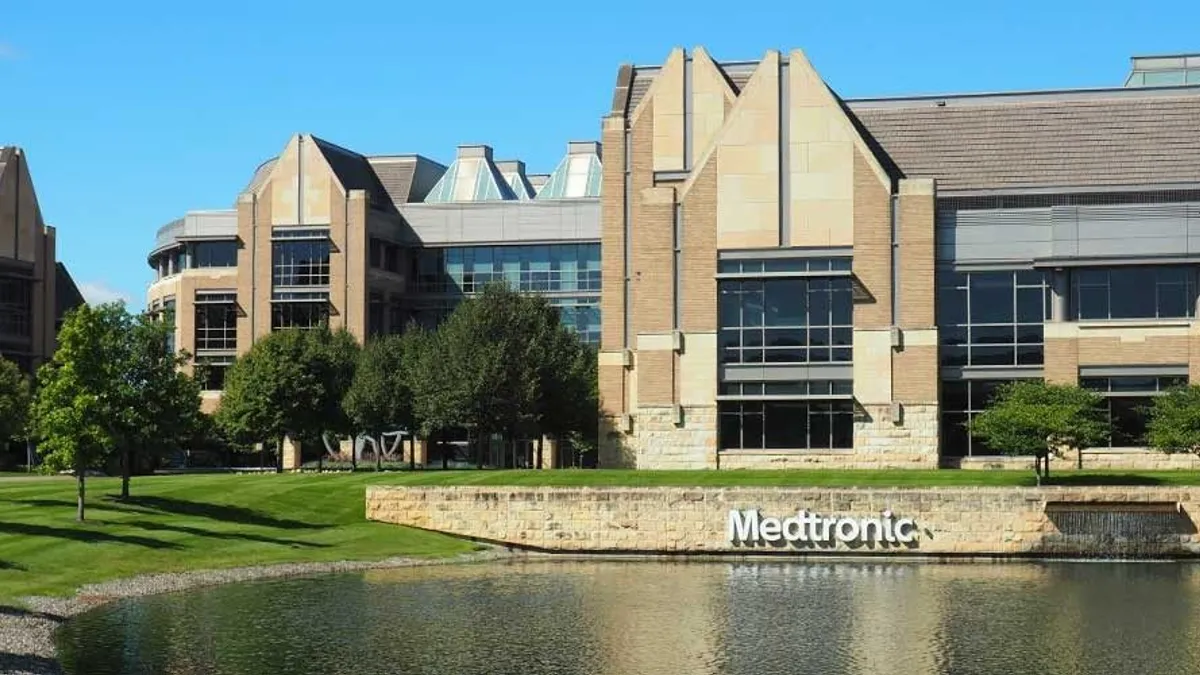Dive Brief:
-
FDA has approved Medtronic's SenSight directional lead system used for deep brain stimulation therapy, a product CEO Geoff Martha has boasted in recent comments to investors would win it market share.
-
The SenSight leads have two functions that physicians previously had to choose between. SenSight implants both send electrical signals to treat movement disorders such as Parkinson's disease, and capture brain signals that may inform the care of the patient.
-
Martha has hailed the leads as closing "a key competitive gap" and setting it up for "multi-year share gain and growth." A full launch is starting immediately.
Dive Insight:
Martha on the past two quarterly results conference calls told investors the device "will close a key competitive gap and further differentiate our Percept PC system" and expressed optimism the combined offering will win market share.
"When you combine SenSight with our Percept PC device, our deep brain stimulation system will be far ahead of the competition. I think we're going to see a multi-year share gain and growth in DBS because we're following up our Percept DBS launch with our new SenSight leads which enhance the sensing and provide us durability," the CEO said.
Medtronic competes with Abbott and Boston Scientific for the DBS market. All three companies have sought to improve their offerings in recent months, with Boston Scientific winning FDA approval for its fourth-generation Vercise Genus system in January and Abbott introducing its NeuroSphere Virtual Clinic in March.
The leads, which Medtronic claimed are the first of their kind, enable physicians to both capture data and deliver neurostimulation. SenSight leads are designed to detect local field potentials, a type of brain signal that correlates with the severity of Parkinson's symptoms.
In a Medtronic press release, Leonardo Almeida, assistant professor of neurology at the University of Florida, noted the significance of capturing the brain signals.
"The more we continue to learn about signals from different diseases and where they are located in relation to where we usually target an implant, the more healthcare teams will be able to refine targeting and accurately plan electrode positioning for each specific patient," Almeida said.
The approval comes one year after FDA authorized Percept PC, a DBS neurostimulation system that can capture and record brain signals. Late last month, Martha told investors "Percept has resulted in 10 points of new implant share gains in the U.S. since its launch last summer." Despite the surge, Medtronic estimated it lost "a couple of points of share year-over-year" in brain modulation.










